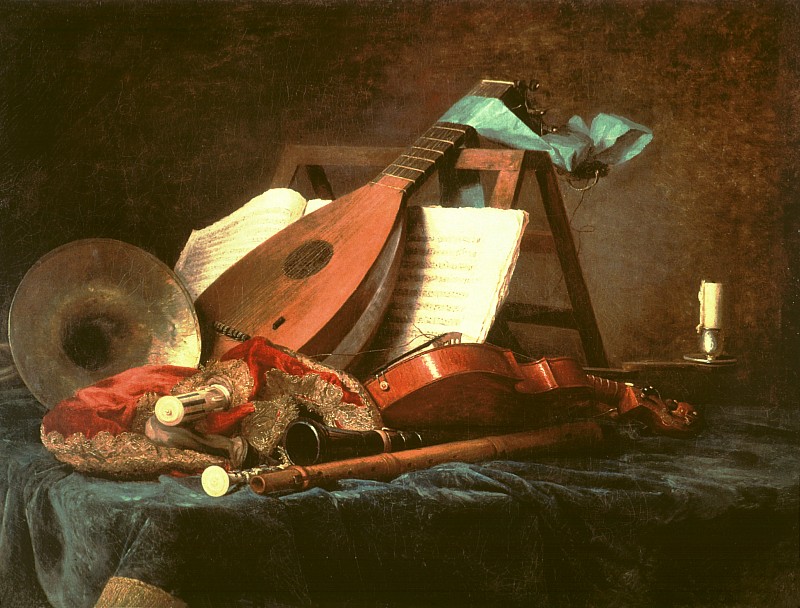|
AMM (group)
AMM is a British free improvisation group that was founded in London, England, in 1965. The group was initially composed of Keith Rowe on guitar, Lou Gare on saxophone, and Eddie Prévost on drums. The three men shared an interest in exploring music beyond the boundaries of conventional jazz, as in free jazz and free improvisation. AMM never achieved widespread popularity, but have been influential in improvised music. Most of their albums have been released by Matchless Recordings, which is run by Eddie Prévost. In a 2001 interview, Keith Rowe was asked if "AMM" was an abbreviation. He replied, "The letters AMM stand for something, but as you probably know it's a secret!" History 1960s AMM was initially composed of Keith Rowe on guitar, Lou Gare on saxophone and Eddie Prévost on drums. Rowe and Gare were members of Mike Westbrook's jazz band; Prévost and Gare were also in a hard bop jazz quintet. The three men shared a common interest in exploring music beyond the boun ... [...More Info...] [...Related Items...] OR: [Wikipedia] [Google] [Baidu] |
Free Improvisation
Free improvisation or free music is improvised music without any rules beyond the logic or inclination of the musician(s) involved. The term can refer to both a technique (employed by any musician in any genre) and as a recognizable genre in its own right. Free improvisation, as a genre of music, developed in the U.S. and Europe in the mid to late 1960s, largely as an outgrowth of free jazz and modern classical musics. Exponents of free improvised music include saxophonists Evan Parker, Anthony Braxton, Peter Brötzmann, and John Zorn, composer Pauline Oliveros, drummer Christian Lillinger, trombonist George E. Lewis, guitarists Derek Bailey, Henry Kaiser and Fred Frith and the improvising groups Spontaneous Music Ensemble, The Music Improvisation Company, Iskra 1903, The Art Ensemble of Chicago and AMM. Characteristics In an atonal context, free improvisation refers to where the focus shifts from harmony to other dimensions of music: timbre, melodic intervals, rhythm ... [...More Info...] [...Related Items...] OR: [Wikipedia] [Google] [Baidu] |
Hard Bop
Hard bop is a subgenre of jazz that is an extension of bebop (or "bop") music. Journalists and record companies began using the term in the mid-1950s to describe a new current within jazz that incorporated influences from rhythm and blues, gospel music, and blues, especially in saxophone and piano playing. David H. Rosenthal contends in his book ''Hard Bop'' that the genre is, to a large degree, the natural creation of a generation of African-American musicians who grew up at a time when bop and rhythm and blues were the dominant forms of black American music. Prominent hard bop musicians included Horace Silver, Clifford Brown, Charles Mingus, Art Blakey, Cannonball Adderley, Miles Davis, John Coltrane, Hank Mobley, Thelonious Monk and Lee Morgan. Musical style Hard bop is sometimes referred to as "funky hard bop". The "funky" label refers to the rollicking, rhythmic feeling associated with the style. The descriptor is also used to describe soul jazz, which is commonly a ... [...More Info...] [...Related Items...] OR: [Wikipedia] [Google] [Baidu] |
Stylus Magazine
''Stylus Magazine'' was an American online music and film magazine, launched in 2002 and co-founded by Todd L. Burns. It featured long-form music journalism, four daily music reviews, movie reviews, podcasts, an MP3 blog, and a text blog. Additionally, ''Stylus'' had daily features like "The Singles Jukebox", which looked at pop singles from around the globe, and "Soulseeking", a column focused on personal responses in listening. Even though they never reached the readership of other music magazines such as PopMatters or Pitchfork, they still had a very consistent and fired-up audience. In 2006, the site was chosen by the ''Observer Music Monthly'' as one of the Internet's 25 most essential music websites. ''Stylus'' closed as a business on 31 October 2007. The site remained online for several years, but did not publish any new content. On 4 January 2010, with the blessing of former editor Todd Burns, ''Stylus'' senior writer Nick Southall launched ''The Stylus Decade'', a web ... [...More Info...] [...Related Items...] OR: [Wikipedia] [Google] [Baidu] |
AllMusic
AllMusic (previously known as All Music Guide and AMG) is an American online music database. It catalogs more than three million album entries and 30 million tracks, as well as information on musicians and bands. Initiated in 1991, the database was first made available on the Internet in 1994. AllMusic is owned by RhythmOne. History AllMusic was launched as ''All Music Guide'' by Michael Erlewine, a "compulsive archivist, noted astrologer, Buddhist scholar and musician". He became interested in using computers for his astrological work in the mid-1970s and founded a software company, Matrix, in 1977. In the early 1990s, as CDs replaced LPs as the dominant format for recorded music, Erlewine purchased what he thought was a CD of early recordings by Little Richard. After buying it he discovered it was a "flaccid latter-day rehash". Frustrated with the labeling, he researched using metadata to create a music guide. In 1990, in Big Rapids, Michigan, he founded ''All Music Guide' ... [...More Info...] [...Related Items...] OR: [Wikipedia] [Google] [Baidu] |
Extended Technique
In music, extended technique is unconventional, unorthodox, or non-traditional methods of singing or of playing musical instruments employed to obtain unusual sounds or timbres.Burtner, Matthew (2005).Making Noise: Extended Techniques after Experimentalism, ''NewMusicBox.org''. Composers’ use of extended techniques is not specific to contemporary music (for instance, Hector Berlioz’s use of ''col legno'' in his '' Symphonie Fantastique'' is an extended technique) and it transcends compositional schools and styles. Extended techniques have also flourished in popular music. Nearly all jazz performers make significant use of extended techniques of one sort or another, particularly in more recent styles like free jazz or avant-garde jazz. Musicians in free improvisation have also made heavy use of extended techniques. Examples of extended techniques include bowing under the bridge of a string instrument or with two different bows, using key clicks on a wind instrument, blowing ... [...More Info...] [...Related Items...] OR: [Wikipedia] [Google] [Baidu] |
Musical Instrument
A musical instrument is a device created or adapted to make musical sounds. In principle, any object that produces sound can be considered a musical instrument—it is through purpose that the object becomes a musical instrument. A person who plays a musical instrument is known as an instrumentalist. The history of musical instruments dates to the beginnings of human culture. Early musical instruments may have been used for rituals, such as a horn to signal success on the hunt, or a drum in a religious ceremony. Cultures eventually developed composition and performance of melodies for entertainment. Musical instruments evolved in step with changing applications and technologies. The date and origin of the first device considered a musical instrument is disputed. The oldest object that some scholars refer to as a musical instrument, a simple flute, dates back as far as 50,000 - 60,000 years. Some consensus dates early flutes to about 40,000 years ago. However, most historians be ... [...More Info...] [...Related Items...] OR: [Wikipedia] [Google] [Baidu] |
Harmony
In music, harmony is the process by which individual sounds are joined together or composed into whole units or compositions. Often, the term harmony refers to simultaneously occurring frequencies, pitches ( tones, notes), or chords. However, harmony is generally understood to involve both vertical harmony (chords) and horizontal harmony ( melody). Harmony is a perceptual property of music, and, along with melody, one of the building blocks of Western music. Its perception is based on consonance, a concept whose definition has changed various times throughout Western music. In a physiological approach, consonance is a continuous variable. Consonant pitch relationships are described as sounding more pleasant, euphonious, and beautiful than dissonant relationships which sound unpleasant, discordant, or rough. The study of harmony involves chords and their construction and chord progressions and the principles of connection that govern them. Counterpoint, which refers to ... [...More Info...] [...Related Items...] OR: [Wikipedia] [Google] [Baidu] |
Melody
A melody (from Greek language, Greek μελῳδία, ''melōidía'', "singing, chanting"), also tune, voice or line, is a Linearity#Music, linear succession of musical tones that the listener perceives as a single entity. In its most literal sense, a melody is a combination of pitch (music), pitch and rhythm, while more figuratively, the term can include other musical elements such as Timbre, tonal color. It is the foreground to the background accompaniment. A line or part (music), part need not be a foreground melody. Melodies often consist of one or more musical Phrase (music), phrases or Motif (music), motifs, and are usually repeated throughout a musical composition, composition in various forms. Melodies may also be described by their melodic motion or the pitches or the interval (music), intervals between pitches (predominantly steps and skips, conjunct or disjunct or with further restrictions), pitch range, tension (music), tension and release, continuity and coheren ... [...More Info...] [...Related Items...] OR: [Wikipedia] [Google] [Baidu] |
Paul McCartney
Sir James Paul McCartney (born 18 June 1942) is an English singer, songwriter and musician who gained worldwide fame with the Beatles, for whom he played bass guitar and shared primary songwriting and lead vocal duties with John Lennon. One of the most successful composers and performers of all time, McCartney is known for his melodic approach to bass-playing, versatile and wide tenor vocal range, and musical eclecticism, exploring styles ranging from pre–rock and roll pop to classical and electronica. His songwriting partnership with Lennon remains the most successful in history. Born in Liverpool, McCartney taught himself piano, guitar and songwriting as a teenager, having been influenced by his father, a jazz player, and rock and roll performers such as Little Richard and Buddy Holly. He began his career when he joined Lennon's skiffle group, the Quarrymen, in 1957, which evolved into the Beatles in 1960. Sometimes called "the cute Beatle", McCartney later invo ... [...More Info...] [...Related Items...] OR: [Wikipedia] [Google] [Baidu] |
Beatles
The Beatles were an English rock band, formed in Liverpool in 1960, that comprised John Lennon, Paul McCartney, George Harrison and Ringo Starr. They are regarded as the most influential band of all time and were integral to the development of 1960s counterculture and popular music's recognition as an art form. Rooted in skiffle, beat and 1950s rock 'n' roll, their sound incorporated elements of classical music and traditional pop in innovative ways; the band also explored music styles ranging from folk and Indian music to psychedelia and hard rock. As pioneers in recording, songwriting and artistic presentation, the Beatles revolutionised many aspects of the music industry and were often publicised as leaders of the era's youth and sociocultural movements. Led by primary songwriters Lennon and McCartney, the Beatles evolved from Lennon's previous group, the Quarrymen, and built their reputation playing clubs in Liverpool and Hamburg over three years from 1960, initia ... [...More Info...] [...Related Items...] OR: [Wikipedia] [Google] [Baidu] |
Ornette Coleman
Randolph Denard Ornette Coleman (March 9, 1930 – June 11, 2015) was an American jazz saxophonist, violinist, trumpeter, and composer known as a principal founder of the free jazz genre, a term derived from his 1960 album '' Free Jazz: A Collective Improvisation''. His pioneering performances often abandoned the chordal and harmony-based structure found in bebop, instead emphasizing a jarring and avant-garde approach to improvisation. AllMusic called him "one of the most important (and controversial) innovators of the jazz avant-garde". Born in Fort Worth, Texas, Coleman began his musical career playing in local R&B and bebop groups, and eventually formed his own group in Los Angeles featuring members such as Ed Blackwell, Don Cherry, Charlie Haden, and Billy Higgins. In 1959, he released the controversial album ''The Shape of Jazz to Come'' and began a long residency at the Five Spot jazz club in New York City. His 1960 album ''Free Jazz'' would profoundly influence the di ... [...More Info...] [...Related Items...] OR: [Wikipedia] [Google] [Baidu] |
Steve Lacy (saxophonist)
Steve Lacy (born Steven Norman Lackritz; July 23, 1934 – June 4, 2004) was an American jazz saxophonist and composer recognized as one of the important players of soprano saxophone. Coming to prominence in the 1950s as a progressive dixieland musician, Lacy went on to a long and prolific career. He worked extensively in experimental jazz and to a lesser extent in free improvisation, but Lacy's music was typically melodic and tightly-structured. Lacy also became a highly distinctive composer, with compositions often built out of little more than a single questioning phrase, repeated several times. The music of Thelonious Monk became a permanent part of Lacy's repertoire after a stint in the pianist's band, with Monk's works appearing on virtually every Lacy album and concert program; Lacy often partnered with trombonist Roswell Rudd in exploring Monk's work. Beyond Monk, Lacy performed the work of jazz composers such as Charles Mingus, Duke Ellington and Herbie Nichols; unlik ... [...More Info...] [...Related Items...] OR: [Wikipedia] [Google] [Baidu] |






